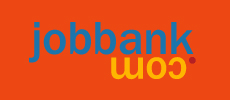Business Correspondence
Business correspondence serves a variety of purposes throughout the career cycle, but most of all it reflects professional courtesy during the job search.
It can be quite time-consuming to correspond personally with everyone you encounter during a job hunt, but each person has the potential to play a role in your job-hunting network. While generally not required, correspondence through formal letters, memos, or email also provides an opportunity to remind the company and the people you have contacted of your interest.
Cover letters
More than a mere formality, a cover letter can spark interest in your special skills and give extra information. Cover letters help explain anomolies that may stand out in a resume, such as a move or career change, salary requirements, or your special link to the company.
Keep the letter to a few brief paragraphs. Avoid generalizations, even when you send out a mass mailing. Be clear about where you are, what you have to offer, what you want, and when you want it. Positive things. For example, instead of stating: "Even though I only have two years experience in the industry, " leave out the negative clause and write: "I doubled my experience in the industry by spending two years in a highly competitive company."
Be formal, yet friendly and open. Use statistics, highlighted statements, or bullets. Because recruiters often skim, make sure vital information can be easily spotted.
Personalize
Address the cover letter to a specific person if you can. Use the head of human resources as a contact if you cannot pinpoint the manager for the particular job you want. If you know someone at the company, or if you have some recognizable and attractive qualification the recruiter would jump at, put it in the first sentence.
Vary your approach
There are a number of reasons why you might be contacting an employer during a job search and it is important to highlight the strengths of each approach in your cover letter.
- When responding to a job posting, refer to where and when you saw the advertisement. Tailor your letter to the job as described by showing how your skills and experience perfectly match its requirements.
- If you send a resume blindly, you have the opportunity to show off your ambition as a proactive rather than reactive job seeker. This drive could be something potential employers applaud. Point it out.
- Your best shot at being hired comes from someone referring you to the job or by using a mutual contact's name. Include in your job search people your friends have mentioned, people you have met or heard about at a social gathering, and professional contacts from your current job. Mention the contact's name in the first sentence and refer to any previous meetings or conversations.
Say why you fit
Explain what intrigues you about the position and the company. If there are aspects of the job that would enhance your career, state them.
Use the cover letter to show how and why you are a perfect match. Highlight a couple of skills from your resume. Get specific. If you are answering an ad, respond directly to the points raised in the job description.
Keep an eye on the industry and the companies you are looking at to spot trends or developments. Mention a company's recent media exposure or incorporate relevant industry news into your cover letter. Be creative.
Start the communication ball rolling
Sometimes a cover letter is just a heads-up that you will be calling. Add a paragraph at the end saying when you plan to follow up and how you can be contacted.
Say thank you
Thank-you letters remind employers of your presence in the applicant pool. If eloquently written, they might help tip the balance in your favor. They cannot hurt, even if the company has already settled on you. They restate your interest in the position, give thoughts in response to the interview, and reaffirm the next step. The thank-you can be handwritten, typed, or emailed, but should be brief.
Respond to rejection
You are not expected to respond to a rejection letter. But if you get one, the company clearly values formality and a response would show your professionalism. The letter should be brief, leaving open mention of the future.
Decline with finesse
If you have more than one offer, or you feel that a position does not meet your satisfaction, send a letter politely declining the job. You may need or want to communicate with this employer in the future and you will want to maintain good relations. In a couple of short paragraphs, thank the recruiter for his/her time and be vaguely positive about future contact.
Formally accept
Beyond the obvious statement of thanks for having been offered a position, the acceptance letter formalizes your agreement to the terms of the job as described in the offer letter. It can be a good legal move as well as a polite one. After the statement of thanks, briefly restate your duties, salary, and benefits package as you understand them.
- Leslie Tebbe, Salary.com contributor

